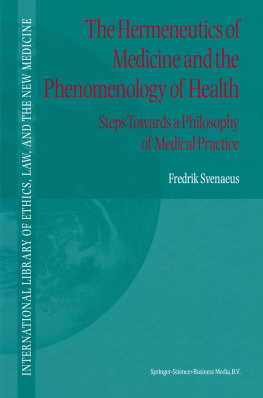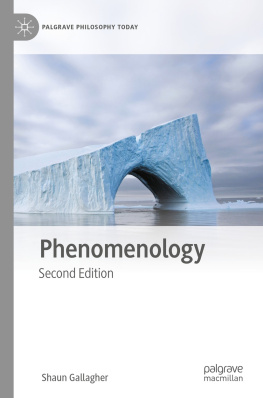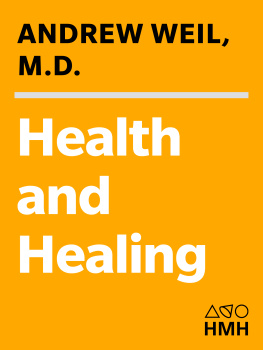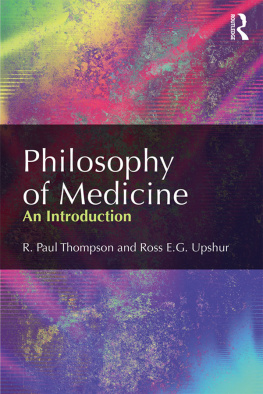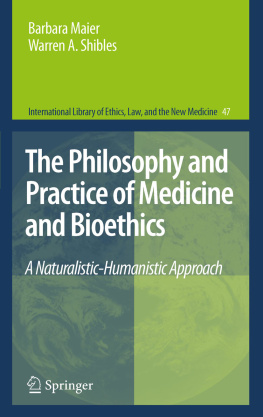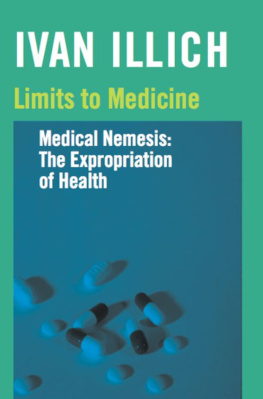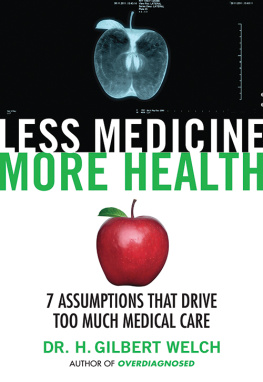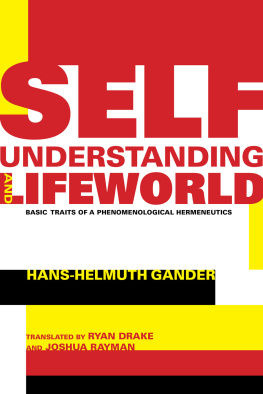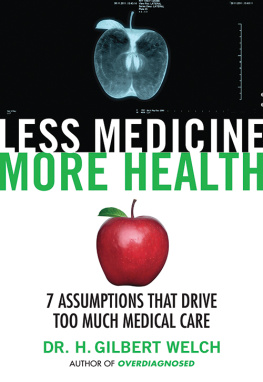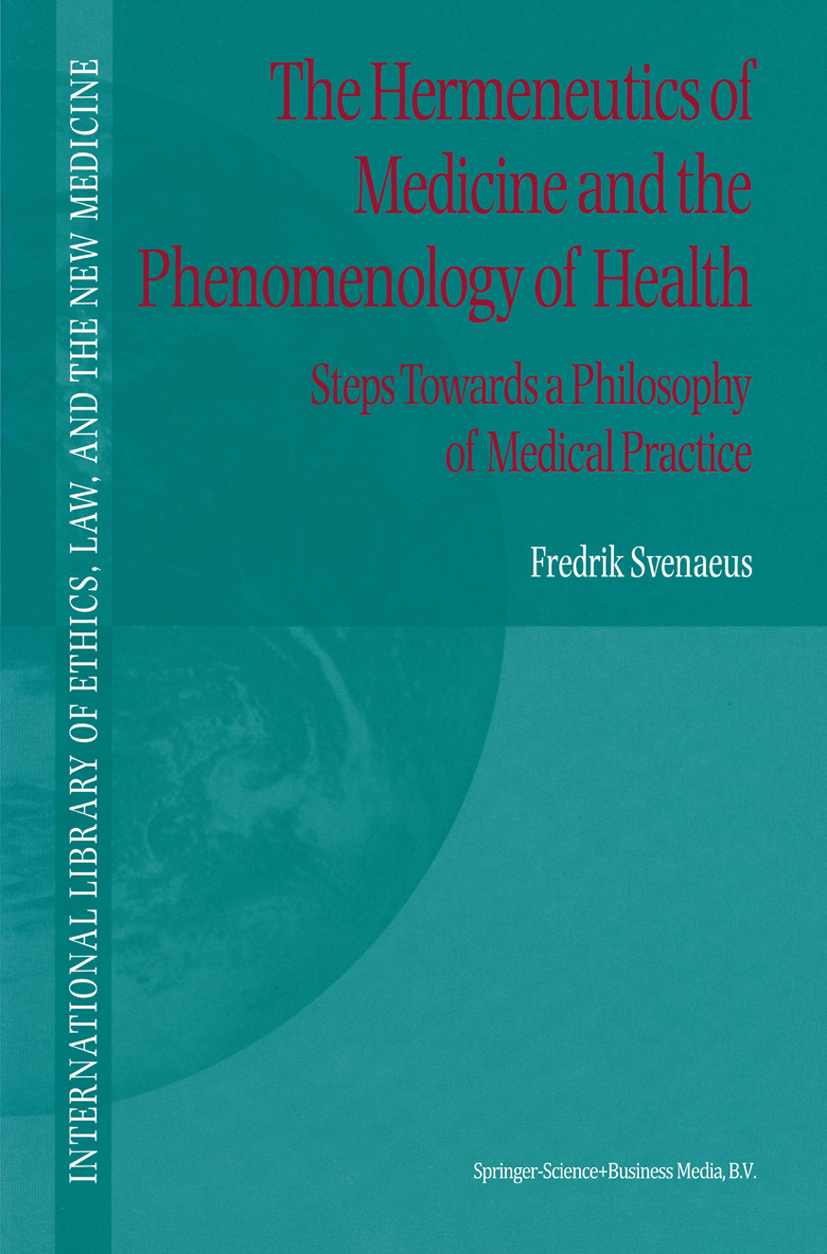Fredrik Svenaeus book is a delight to read. Not only does he exhibit keen understanding of a wide range of topics and figures in both medicine and philosophy, but he manages to bring them together in an innovative manner that convincingly demonstrates how deeply these two significant fields can be and, in the end, must be mutually enlightening. Medicine, Svenaeus suggests, reveals deep but rarely explicit themes whose proper comprehension invites a careful phenomenological and hermeneutical explication. Certain philosophical approaches, on the other hand specifically, Heideggers phenomenology and Gadamers hermeneutics are shown to have a hitherto unrealized potential for making sense of those themes long buried within Western medicine. What results from his reading of those themes is a bold and important ontology and epistemology of medicine from central concepts such as health and illness, to what is mostly termed the physician-patient relationship, to a constructive interpretation of the prominent methods and goals of medicine.
As the author makes quite clear, moreover, it is medicines own rich historical traditions that itself demonstrates the need for the kind of phenomenological approach he engages. The most prominent characteristics of that history, he rightly appreciates, are, first, that the fundamental point of medicine is the encounter or meeting with patients; therefore, second, medicine must be understood as a specific kind of practice. While it is true that medicines centerpiece, so to speak, is the clinical event, Svenaeus argues that very few of those who have written about medicine focus on the encounter, the meeting of doctor and patient, itself. What has instead captured most attention are the results or outcomes of that meeting health, compliance, satisfaction, autonomy. However interesting such matters are, and Svenaeus does not dispute this, the fact is that medicine has only rarely been apprehended in light of the ontological and most important epistemological themes which, more than anything else, reveal what medicine is.
Svenaeus clearly appreciates as well how deeply contemporary medicine has been influenced by the close relationships it has developed over the past 100 years with the biomedical sciences. As he suggests, however, such sciences are themselves specific types of human activity that impact not only medicine but the everyday world as well. Not only must this influence be critically appreciated, but a fuller phenomenology of medicine, he appreciates, must include critical explications of the central orientations and concepts of the biomedical and natural sciences. Although he does not engage in the latter, beyond a number of intriguing suggestions arising from his central concern with medicine as a clinical practice, it is clear that he understands this wider thematic quite well.
One of his more creative analyses is found in the way Svenaeus utilizes the key notions developed by Heidegger, especially in Sein und Zeit , to work his way through the major features of the clinical practice that is, the medical encounter. It is in his quite fascinating reading of Gadamer, however, that readers will be treated to perhaps the most innovative and intriguing features of this important book. After a careful critique of Ricoeur and other, more recent, discussions of hermeneutics, Svenaeus concludes that none prove entirely adequate or pertinent to the dimensions of clinical practice whose major characteristic is not text, but rather dialogue. Suggesting how Gadamers main notions are commensurate with Heideggers ontology, Svenaeus then embarks on his own phenomenological explication of the clinical encounter and here, as Ive suggested, is his native air, the place he knows best and where his innovation and insight are clearest.
To help make his case as clear and compelling as possible, it is evident that he understands what is needed: a praxical discussion of actual clinical encounters. There are a number of clinical examples provided, each chosen because it illustrates some paradigmatic features of the clinical encounter, and in these discussions Svenaeuss wonderfully articulate feel for actual clinical life is the clearest and most interesting.
I first came to know Fredrik Svenaeus during his extended visit at our Center for Clinical and Research Ethics at Vanderbilt University Medical Center. His excitement over what became available to him here was obvious, as was his quick intelligence and, more, his completely natural sense for, and his ease in, clinical encounters. He was, if I may so express it, very much at home not unlike the way in which he assimilates Heideggers key notions of the homelike (and un-homelike) attunement in order to understand the special aspects of meetings and encounters which present people as ill, injured, or compromised by social or genetic circumstances.
This book is a pleasure to read, for it sheds important light on hitherto only rarely understood features of medicine as a clinical practice. Unusually articulate and well read in the important literatures of both fields, Svenaeus shows a sound knowledge both of medicine and phenomenology. His innovation and insights will doubtless make this book a standard against which future studies in the philosophy of medicine will be judged.
Nashville, Tennessee, August 2000
Richard M. Zaner

